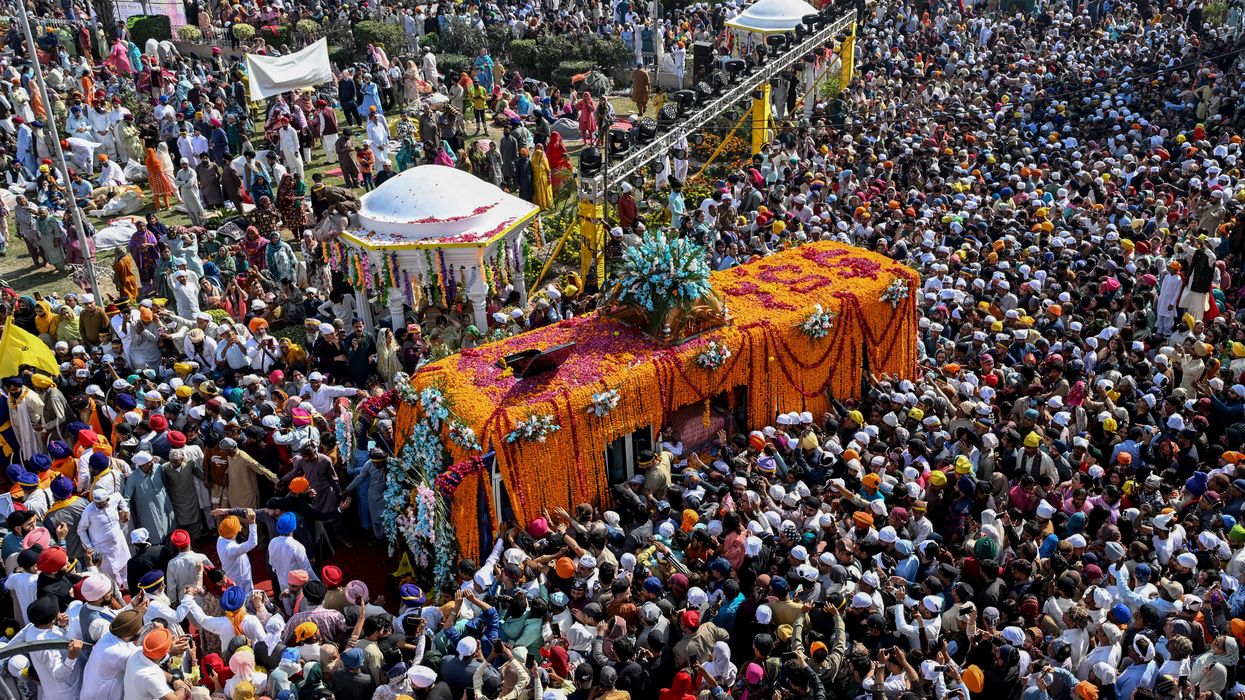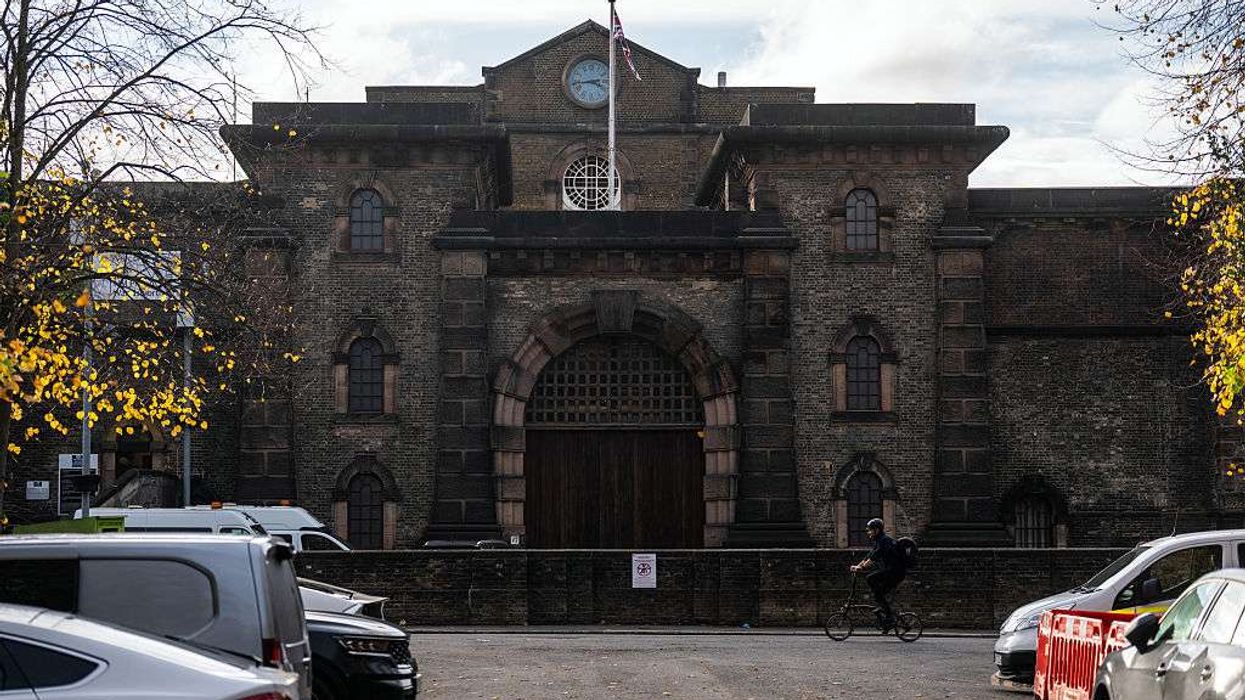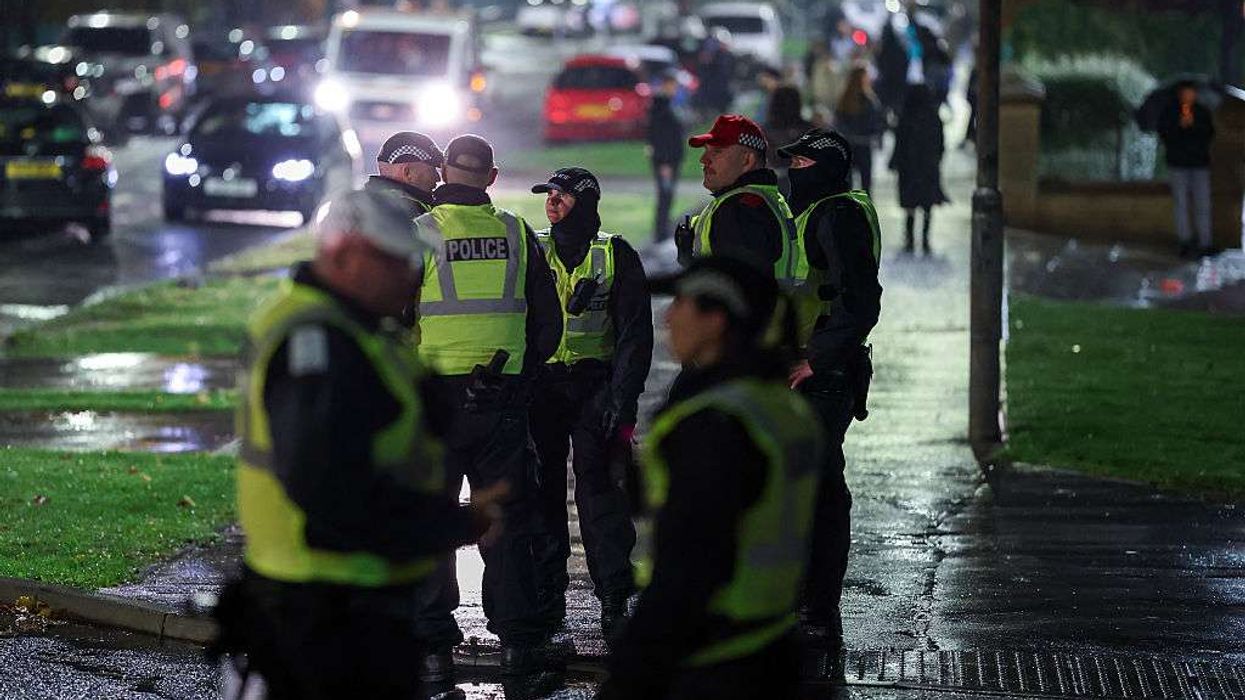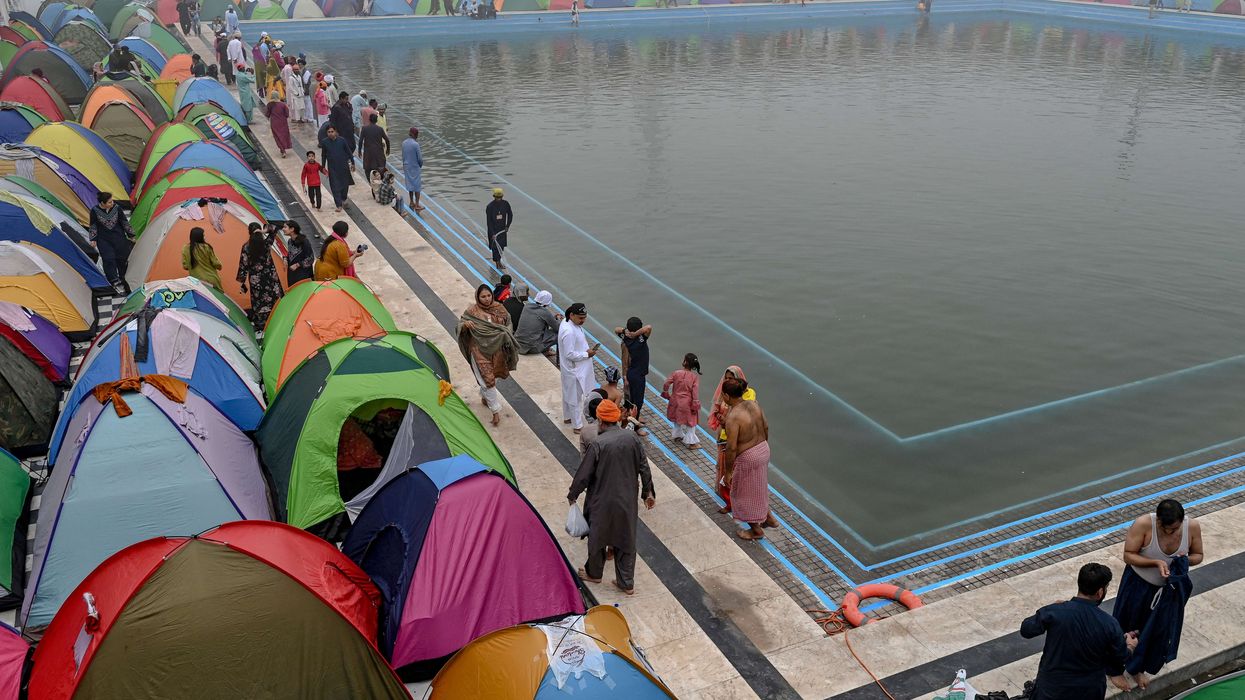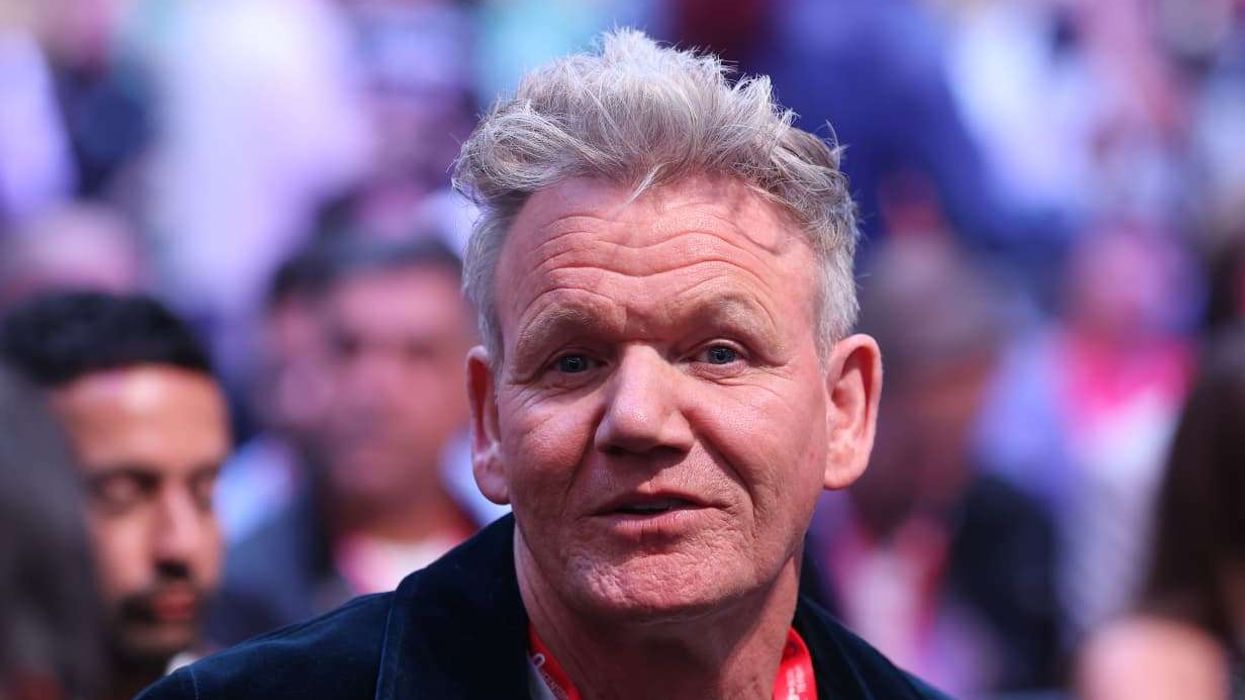THE PAKISTANI city of Nankana Sahib, the birthplace of Sikhism’s founder Guru Nanak, welcomed thousands of pilgrims on Wednesday with banners, prayers and hymns as devotees gathered to mark his 556th birth anniversary.
Many of the visitors came from India in what is the first major cross-border pilgrimage since deadly clashes in May led to the closure of the land border between the two countries.
“We were worried about what the environment would be like on the Pakistan side and how people would treat us,” said 46-year-old Inderjit Kaur. “But it has been lovely. We were given a warm welcome.”
Officials said around 40,000 worshippers gathered at the shrine in Nankana Sahib, where Guru Nanak was born in 1469. Inside the complex, marigold flowers decorated the walls, and the sound of religious hymns filled the air. Men and women prayed, with some taking ritual dips in a pond.
“There is no fear here,” said 66-year-old Harjinder Pal Singh, a retired banker from India. “The way we celebrate Guru Nanak’s birthday in Delhi, it is being celebrated with the same passion here.”
Tensions between India and Pakistan remain high. The May clashes, the most intense fighting since 1999, killed more than 70 people in missile, drone and artillery exchanges.
Inside the shrine, however, pilgrims from both sides greeted each other warmly, exchanged gifts and took photographs together. At the main gate, young Muslims and Hindus joined Sikh devotees dancing to the beat of the dhol drum.
“There is only a border that separates us, but there are no differences in our hearts,” Harjinder said.
‘Beyond words’
Outside the shrine, 90-year-old Muhammad Bashir stood waiting with his grandsons, hoping to meet someone he had never seen before — Sharda Singh, a Sikh whose family fled Pakistan during partition in 1947. Their fathers had been close friends and had stayed in touch for decades but never met again.
When Singh appeared, the two men recognised each other immediately, embraced and broke down in tears.
“I thought I would die without meeting you,” Bashir said, his voice trembling. “But at last you are here. Now I can die in peace.”
Singh said he had long dreamt of the meeting. “It feels as if we have reunited after ages,” he told AFP. “The love we received here is beyond words. People care for each other deeply, but it is the governments that have differences.”
Petals and prayers
Many pilgrims, barefoot, waved saffron flags as they processed through the shrine, singing hymns and reciting poetry. Women volunteers prepared vegetables in large communal kitchens as men cooked rice, lentils, chickpeas and sweets in massive cauldrons. The food was shared with everyone, regardless of faith.
As the procession moved into the streets, Muslims from nearby homes showered petals from rooftops, while an aircraft flew overhead releasing more flowers.
“We are in love with the sacred soil of Pakistan,” said Indian pilgrim Giani Kuldeep Singh. “This is the land of our Guru. Our message is one of peace and brotherhood.”
Pakistan’s Religious Affairs Minister Sardar Muhammad Yousaf told the gathering, “Religion is individual, but humanity is shared.”
The festival continues through November, including events in Kartarpur, where Guru Nanak is buried. The Kartarpur Corridor, opened in 2019, has remained closed from the Indian side since May.
(With inputs from AFP)
